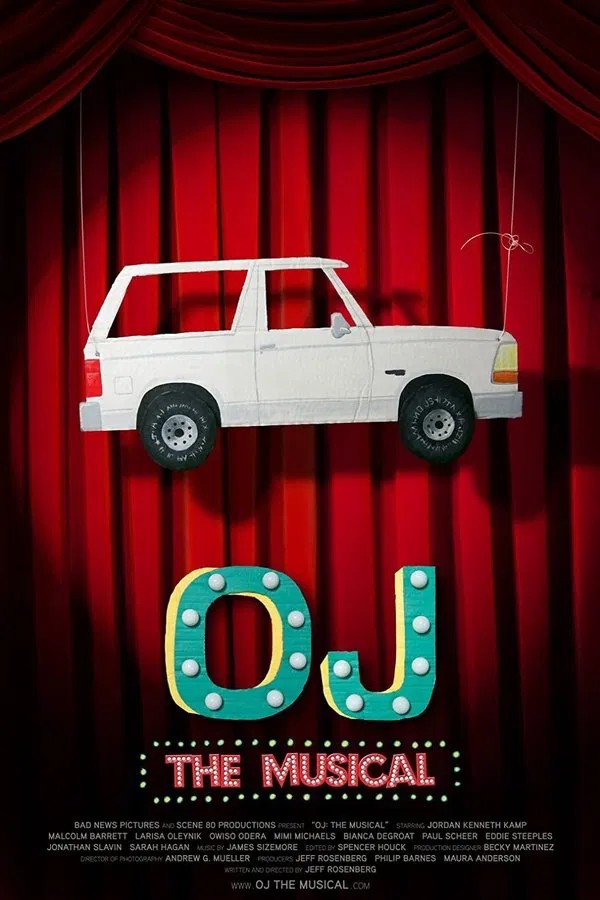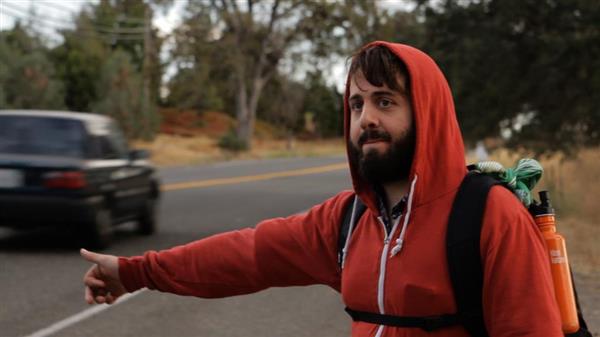A High-Concept Gamble with Harmonious Moments
The O.J. Simpson case remains a deeply embedded, often uncomfortable, part of American cultural history. To approach it through the medium of a musical, and a comedic one at that, is a bold artistic choice that immediately piques interest. Director Jeff Rosenberg’s “OJ: The Musical” is not a straightforward historical account set to music, but rather a mockumentary following the eccentric journey of a theater artist determined to stage an Othello-based musical about O.J. Simpson. This meta-narrative provides a fascinating framework to explore themes of ambition, friendship, and the very nature of how we process and represent infamous public figures.

The Genesis of a Controversial Cadenza
The spark for “OJ: The Musical” originated from a rather insightful connection made by director and co-writer Jeff Rosenberg during his college years. While studying Shakespeare’s “Othello,” Rosenberg recognized parallels between the tragic Moor and the public persona and downfall of O.J. Simpson. This realization, he shared in an interview with The Santa Barbara Independent, even inspired a song titled “Let’s Drive this Fucking Bronco Right Off the Road.” This unconventional origin story highlights the film’s independent spirit and its willingness to delve into uncomfortable territory with a unique artistic vision.
The film’s production as an indie project likely afforded Rosenberg the creative control necessary to pursue such a high-concept idea. Working with a relatively small cast and crew, often comprised of friends and collaborators from his past, including those from his time at Ohio University, contributed to the film’s intimate feel and comedic chemistry. Premiering at film festivals, such as the Traverse City Film Festival where it garnered praise from filmmaker Michael Moore, and opening the Athens International Film and Video Festival, helped the film gain initial traction and exposure within the independent film circuit before becoming available on platforms like Amazon Video.
Staging the Saga: Plot and Character Dynamics
The narrative centers on Eugene Olivier (Jordan Kenneth Kamp), a passionate and undeniably eccentric theater artist from New York City who, disillusioned with the Broadway scene, decides to relocate to Los Angeles. His mission: to reconnect with his childhood friends, Lawrence (Malcolm Barrett) and Regina (Larisa Oleynik), and, more importantly, to enlist their help in bringing his ambitious and highly unusual Othello-inspired O.J. Simpson musical to life.
The film unfolds as a mockumentary, chronicling the often-hilarious struggles and triumphs of Eugene and his friends as they attempt to navigate the logistical, creative, and ethical challenges of staging such a controversial production. The humor arises from the absurdity of the premise itself, the clash between Eugene’s unwavering artistic vision and the practical realities of independent theater, and the dynamic between the three friends as they confront their past and present aspirations.
While the film is a comedy, it subtly touches upon the complex legacy of O.J. Simpson and the public’s enduring fascination with the case. It explores how a public figure can become a canvas for artistic interpretation, regardless of the sensitivity of the subject matter. The characters, particularly Eugene, are driven by a passion for their craft, even if that passion leads them down unconventional paths. The performances of the central trio are crucial to the film’s success, carrying the comedic weight and providing moments of genuine heart amidst the absurdity.
Behind the Scenes: Filmmaking Style and Cinematography
As a mockumentary, the filmmaking style of “OJ: The Musical” likely employs handheld camera work, talking-head interviews, and a generally vérité aesthetic to create the illusion of an unscripted, observational documentary. This approach, while often utilized for comedic effect in mockumentaries, also serves to ground the more outlandish elements of the story in a semblance of reality.

The cinematography, while perhaps not striving for visual grandeur, is functional and serves the narrative effectively. The focus is on capturing the character interactions, the makeshift nature of their theatrical production, and the comedic moments that arise from their endeavors. The editing plays a vital role in shaping the film’s comedic timing and pacing, cutting between the “documentary” footage of the production process and the glimpses of the musical itself. The film’s visual style is a key component of its mockumentary format, contributing to its humorous and self-aware tone.
Critical Overtures and Audience Chorus
Critical reception for “OJ: The Musical,” while not extensively documented in mainstream publications, includes positive feedback from sources like The Santa Barbara Independent, which described the film as a “funny mockumentary” and praised its entertainment value. The review highlighted the film’s ability to find humor in its controversial premise and the engaging performances of the cast.
On Rotten Tomatoes, the film has an audience score, indicating a level of reception from viewers, though a critic score is not readily available. IMDb provides a solid rating of 7.3 out of 10 based on over 100 user reviews, suggesting a generally positive response from audiences who have discovered the film. User reviews on platforms like IMDb and Amazon often praise the film’s originality, its humor, and the performances of the actors. Some viewers appreciate the film’s bold concept and its ability to generate laughs from a sensitive subject, while others might find the premise itself off-putting. The film’s popularity appears to be concentrated within indie film circles and among viewers who appreciate quirky, unconventional comedies. Information on TMDB ratings and reviews in languages other than English is limited.
The Curtain Call: Reach and Reception
Given its independent nature and mockumentary format, “OJ: The Musical” did not have a traditional wide theatrical release, and therefore, box office figures are not applicable. Its reach and success are better measured by its presence on streaming platforms, its reception at film festivals, and the positive word-of-mouth it has generated among its audience. The film’s availability on platforms like Amazon Video allows it to reach viewers who actively seek out independent and niche content.
The film’s popularity, while not on the level of mainstream blockbusters, is evident in its positive IMDb rating and favorable user reviews. It has found an audience that appreciates its unique blend of comedy, musical elements, and its daring approach to a sensitive subject. The film’s legacy will likely be defined by its inventive concept and its ability to spark discussion about the boundaries of artistic expression and the ways in which we process complex cultural events.
Final Thoughts: A Harmonious and Thought-Provoking Experiment
“OJ: The Musical” is a film that takes a significant creative risk, and for the most part, it pays off. Jeff Rosenberg crafts a funny and surprisingly insightful mockumentary that uses a controversial premise as a springboard to explore universal themes of artistic passion, friendship, and the sometimes-absurd nature of human endeavor. While the subject matter may not appeal to everyone, those willing to engage with its unconventional approach will find a film that is both entertaining and thought-provoking. The performances are strong, the humor lands effectively, and the film’s underlying commentary on how we grapple with public figures and their legacies adds a layer of depth. “OJ: The Musical” is a harmonious, if at times daring, experiment in cinematic storytelling that is well worth experiencing.
